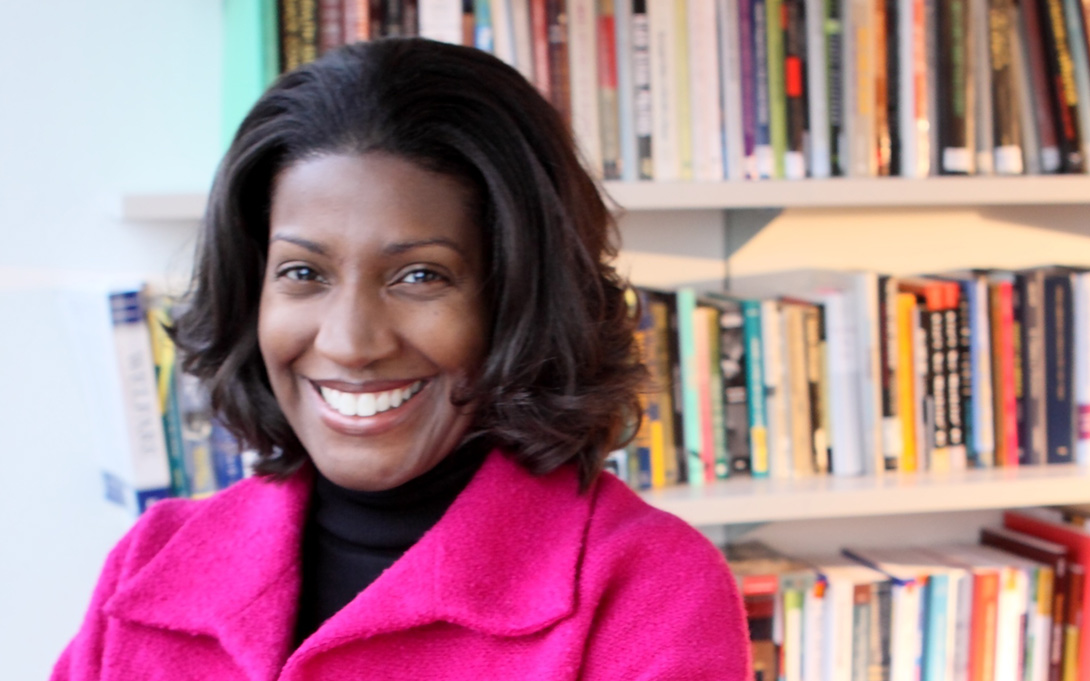
The Anti-Racism Collaborative—a strategic space for U-M community engagement on research and scholarship on anti-racism—has named five faculty members as Research and Community Impact Fellows: Melissa Borja, Charles H.F. Davis III, William Lopez, Deborah Rivas-Drake and Celeste Watkins-Hayes.
Inaugural fellows were selected based on their established track record of research and relationships with community partners on work that challenges systemic racism.
“U-M scholars play a critical role in building and maintaining partnerships with local and national communities to address pressing racial issues in our society,” said Tabbye Chavous, director of the National Center for Institutional Diversity.
“This exceptional group of scholars are recognized for their innovative scholarship, along with innovative approaches, skills and competencies for meaningfully partnering with communities throughout the research cycle to make impacts towards more equitable communities and society.”
The fellows will showcase their research and scholarship in a Jan. 25 panel discussion hosted by Provost Susan M. Collins titled, “Anti-racist and community-centered research approaches for a more just and equitable society.” The discussion kicks off an event series beginning this semester, when each fellow will lead a conversation about their research and scholarship.
The fellows include:
- Melissa Borja, assistant professor of American culture, LSA.
Borja researches migration, religion, politics, race and ethnicity in the United States and the Pacific World. She has been a national leader in work on anti-Asian racism during the COVID-19 pandemic as the lead investigator of the Virulent Hate Project and an affiliated researcher with the Stop AAPI Hate movement.
- Charles H.F. Davis III, assistant professor of education, School of Education.
Davis is principal investigator of the #PoliceFreeCampus Project and founding director of Campus Abolition Research Lab, an interdisciplinary research incubator focused on leveraging data and critical analyses toward dismantling carceral university approaches and reimagining postsecondary education as a life-affirming institution.
- William Lopez, assistant professor of health behavior and health education, School of Public Health.
Lopez is the author of the award-winning book “Separated: Family and Community in the Aftermath of an Immigration Raid” and teaches courses on the fundamentals of public health, including the health impacts of law enforcement violence. Through engagements with undergraduate student groups and graphic artists, Lopez is also working to develop high school discussion guides for books authored by faculty of color.
- Deborah Rivas-Drake, Stephanie J. Rowley Professor of Education and professor of education, School of Education; and professor of psychology, LSA.
Rivas-Drake examines how school, peer and family settings impact how adolescents navigate racism, xenophobia and identity, and the implications for these youths’ academic, socioemotional and civic development. She is author of the award-winning book “Below the Surface: Talking with Teens about Race, Ethnicity, and Identity.”
- Celeste Watkins-Hayes, University Diversity and Social Transformation Professor; Jean E. Fairfax Collegiate Professor of Public Policy and professor of public policy, Gerald R. Ford School of Public Policy; and professor of sociology, LSA.
Watkins-Hayes is founding director of the Center for Racial Justice at the Ford School and a nationally recognized scholar and expert on HIV/AIDS, social policy and safety nets, and race, class and gender. She is the author of the award-winning book “Remaking a Life: How Women Living with HIV/AIDS Confront Inequality.”
The ARC is hosted by the National Center for Institutional Diversity and is a part of the provost’s anti-racism initiative, a cross-campus campaign focused on enhancing U-M’s capacity for advancing racial equity and justice in society.
More information
This story was originally written by Charlotte Ezzo from the National Center for Institutional Diversity and published in the University Record.
More news from the Ford School